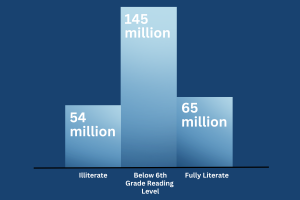Don’t take every opportunity: knowing your limits
May 25, 2019
“Take every opportunity.” That’s something we’ve been told all our lives, and a principle that I wholeheartedly embraced as I entered high school. This resulted in me taking the most classes I could, joining as many clubs as I had available brunches and lunches and applying for any positions that came across my path. No matter how much I took on, I always felt that I could do it. Until senior year.
First semester senior year was when I became Editor-in-Chief of the Epic, officer of three clubs and captain of the tennis team.
It was also when I hit rock bottom.
Every day, I ran from meeting to meeting and then to two hours of tennis practice. Then, I’d still have to go home and edit Epic stories for hours on end, complete my homework and work on college apps. Time after time, my activities conflicted: I couldn’t go to DECA because I had meetings for French Honor Society; I missed out on time to work on Epic because I had tennis matches; I missed out on parts of practice because I was in interviews for DECA. I felt horrible about missing meetings and wondered how I was supposed to choose which to attend. Never wanting to let anyone down, I felt immense pressure from the expectations that everyone seemed to have for me.
Juggling a lot on my plate was nothing new to me. In junior year, my time commitments, with clubs, tennis and AP classes, were probably even worse than they were in senior year. But for some reason, the first semester of my senior year felt like my lowest point. Perhaps it was because everywhere I went during my senior year, I felt that people had expectations for me because of all my positions — expectations that I couldn’t meet. Overwhelmed by my responsibilities, I doubted myself and my abilities as a leader in every organization I was in.
Of course, now that I’m a second semester senior, I have all the time in the world to hang out with friends, grab food or binge-watch Netflix. But I still wonder if all those years of overworking myself were really worth it. Taking every opportunity sometimes even made me begin to dislike activities I loved doing — it’s hard to enjoy editing stories when you’ve already spent four hours doing so. And it sometimes made me really bitter, wondering why I was devoting so much time to all these things when I could be relaxing instead.
My biggest problem was my mindset: I equated working hard with success, and I felt guilty whenever I relaxed. When I hung out with my friends, I always thought about what else I could be doing with that time — finishing homework, studying for tests, working on something for my clubs. At home, I hated being idle.
In my four years of high school, I’ve learned that everyone has their limits. Being able to do it all is not worth being overwhelmed and stressed all the time. It’s important to know your limits and be able to give some things up so that you can truly enjoy doing what you do and be happy. It’s cliché, but you really do need to find a balance between work and play. That’s something that doesn’t come easily to me, but I’m working on it and beginning to realize that it’s okay to not be working all the time. And it’s also important to realize that it’s okay to not meet others’ expectations — just be happy with yourself.
“Take every opportunity.” That’s something we’ve been told all our lives, but a principle that just isn’t tenable. How can you enjoy doing something when you’re going to sleep at 3 a.m. every night because of it? How can you feel content with yourself with the constant pressure of high expectations set on you? How can you be truly happy?
Don’t take every opportunity. Do take every opportunity that makes you happy. And when you realize you’ve met your limits, it’s okay to let things go.




























































